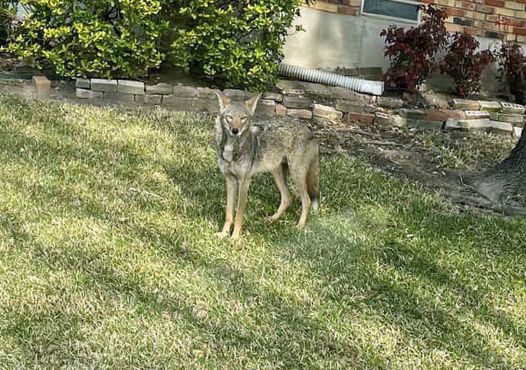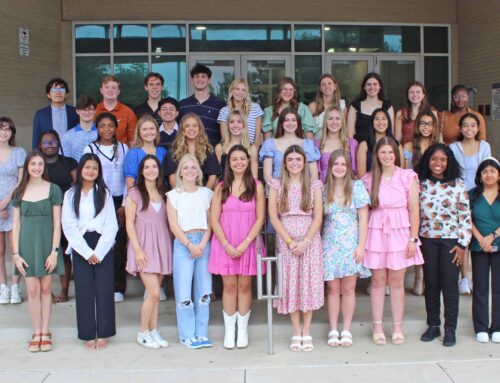The City of Dallas will establish a new wildlife reporting system to enable citizens to share information about coyotes, bobcats and other potentially dangerous animals in urban areas. The effort is a response to Tuesday morning’s coyote attack on a White Rock Valley 2-year-old while the child was on his own front porch. The hotline will be up-and-running by day’s end, officials pledged in a press conference Thursday.
“If you have a coyote being aggressive and actively coming toward you, 911 is still the best avenue,” advised Adam Henry, urban biologist with the United States Department of Agriculture, who said 311 should be used for non-emergency calls until the hotline is fully functional. “We do encourage all of Dallas and residents in that particular neighborhood to use those tools for reporting. They are useful, and they are needed data to that we can track the actions of coyotes in the neighborhoods.”
Henry said 3 coyotes have been killed by wildlife specialists since Tuesday – all with markings matching the animal which attacked the toddler. The actions were necessary because the animals showed aggressive behavior toward humans and because the brain stems of the coyotes must be submitted for rabies testing, he said.
Dallas Animal Services field manager Ann Barnes defended the actions of her agency, saying they’d responded to all 14 calls they received prior to the attack, either by sending an agent in person or by attempting to get more information.
“Our response was timely and accurate,” she said, though she admitted they “can do better” with more help from the public. She said the agency’s short-term goal is “getting more accurate information from the public” and urged citizens to use the hotline when it’s ready.
Barnes also stressed the importance of making official reports, as opposed to sharing locations and photos on social media.
“It seems to be common practice for people to post things on social media and talk between themselves on Facebook or Nextdoor, and that’s great, but they have to understand that we don’t dispatch officers based on what’s on social media. We don’t have access to those things. So instead of putting your complaint on social media, please call the hotline.”
Brett Johnson, urban biologist with the Dallas Park and Recreation Department, said he spoke to several residents who reported that their neighbors were leaving food out for wild animals. He also said he witnessed numerous examples of “unintentional feeding” throughout White Rock Valley.
“It’s something as simple as feeding cats outdoors. When you have overflowing bird feeders, you’re feeding rodents, and when you’re feeding rodents, you’re attracting coyotes. It happens. I wasn’t trying to blame anybody, but when you look at these (coyote attack) incidents, nearly every time there’s a feeding issue, whether it’s intentional or unintentional. It’s something as simple as that bag of chips that got thrown out the window or blew out the window.”
Asked about citizens taking matters into their own hands, the experts had one message – just don’t.
“Discharging a firearm in the city limits is illegal,” said Dallas Police Sgt. Warren Mitchell. “Any citizen who discharges a firearm recklessly – it is a crime.”
“My message is let the professionals sort this out,” agreed Henry. “Most of the time the efforts that are put out are only going to potentially wound or injure that animal. We did have an incident last night of a vigilante that was trying to do that. Understand – that’s not their profession, that’s my profession. Let the professionals come in and do that in a controlled, professional manner so that we can administer a humane solution to this end.”
Moving forward, Henry says his team has a plan to remove the problem animals and encourage better behavior in the wildlife which remains.
“We’re trying to get back to those good coyotes that have not had a problem. We’re not removing all coyotes, we’re only selectively removing those coyotes in those areas that are selectively causing harm to humans. In fact, we will be creating a healthier population. We will be creating guidelines for the rest of them. Most of those bad behaviors are taught by parents in a wildlife community. Mom teaches pups where to go to find food. So, if we short circuit that and cut that off, then we don’t have those pups going down a life of crime, to relate it to the human world. We want to steer them in the right direction and keep them good citizens in our community.”
Update: The wildlife hotline is now taking calls at 469-676-9813.






